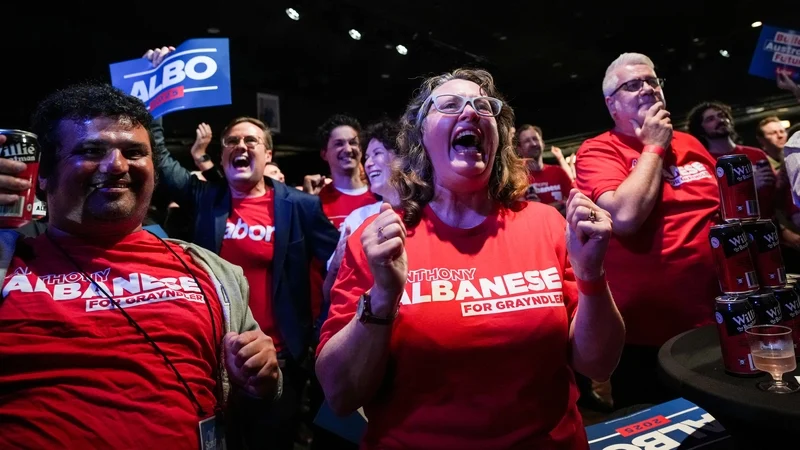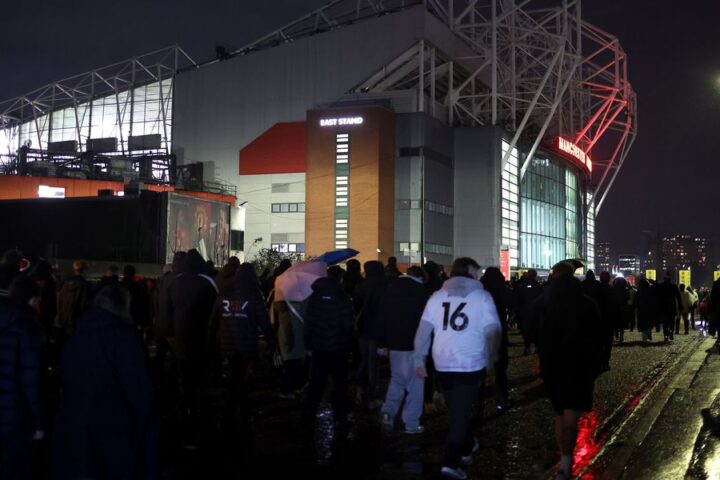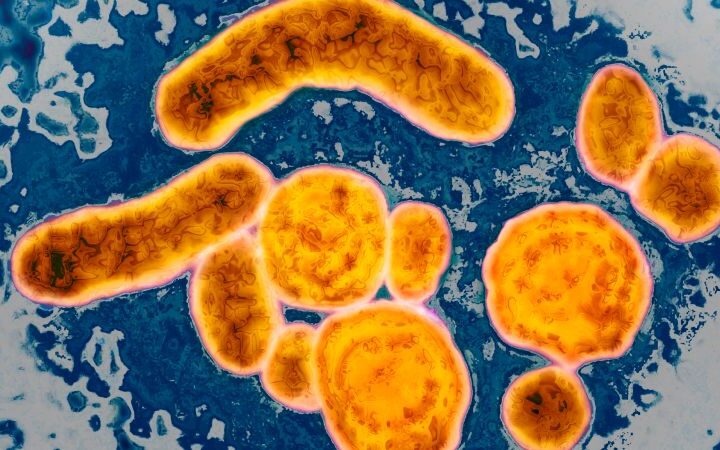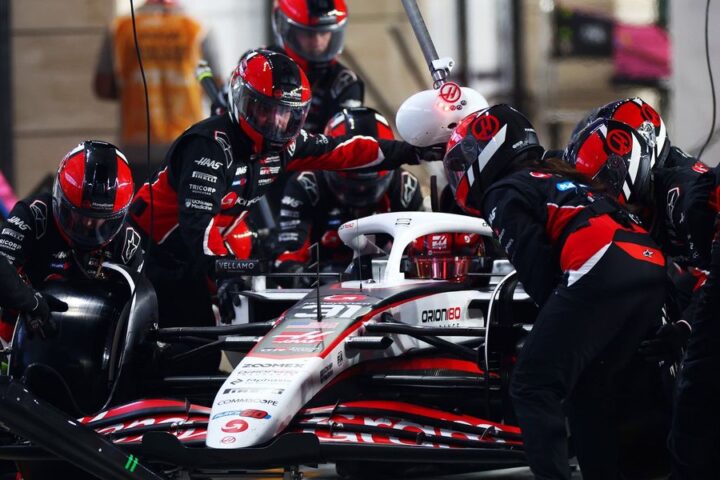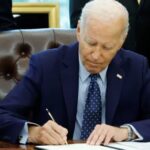Australian Prime Minister Anthony Albanese’s left-leaning Labor Party won the general election, national broadcaster ABC said in a projection based on early results.
“Labor will form government in the next parliament. It’s a big swing that’s on at the moment. I can’t see how it turns around,” ABC election analyst Antony Green told viewers.
Australians voted in the bitterly contested general election, deciding a contest shaped by living costs, climate anxiety and US President Donald Trump’s tariffs.

From dusty desert towns to sun-splashed harbour cities, millions of Australians had a choice between incumbent Prime Minister Anthony Albanese and conservative challenger Peter Dutton.
“I’ll leave nothing on the field over the next three years if I’m re-elected as Australia’s prime minister,” Mr Albanese told Channel Seven earlier.
“I’m hopeful that we receive a majority government today so that we can build on the foundations that we’ve laid. Australia has turned the corner.”
A total of 18.1 million voters were enrolled for the election. More than a third of them cast an early ballot, the election authority said.
Voting is compulsory, enforced with fines of Aus$20 (€11.40), leading to turnouts that top 90%.
Mr Albanese, 62, promised to embrace renewable energy, tackle a worsening housing crisis, and pour money into a creaking healthcare system.
Trump slump
Liberal Party leader and former police officer Mr Dutton, 54, wanted to slash immigration, crack down on crime and ditch a longstanding ban on nuclear power.
Some polls showed Mr Dutton leaking support because of Mr Trump, who he praised this year as a “big thinker” with “gravitas” on the global stage.

As Australians soured on Mr Trump, both Mr Dutton and Mr Albanese took on a more pugnacious tone.
“If I needed to have a fight with Donald Trump or any other world leader, to advance our nation’s interest, I’d do it in a heartbeat,” Mr Dutton said in April.
Mr Albanese condemned Mr Trump’s tariffs as an act of “economic self-harm” and “not the act of a friend”.
Economic concerns dominated the contest for the many Australian households struggling to pay inflated prices for milk, bread, power and petrol.
Campaign stumbles
Both Mr Albanese and Mr Dutton tried to tout themselves as men of the people but were stumped when asked the price of eggs in a nationally televised debate.
Coal-mining superpower Australia had to chose between two leaders with sharply contrasting ideas on climate change and emissions reduction.

Mr Albanese’s government embraced the global push towards decarbonisation, warning of a future in which iron ore and polluting coal exports no longer prop up the economy.
Mr Dutton’s signature policy was a €1.7bn scheme to construct seven industrial-scale nuclear reactors, doing away with the need to ramp up renewables.
The 36-day campaign was a largely staid affair but there were a few moments of unscripted levity.
Mr Albanese tumbled backwards off the stage at a heaving campaign rally, while Mr Dutton drew blood when he hit an unsuspecting cameraman in the head with a stray football.
